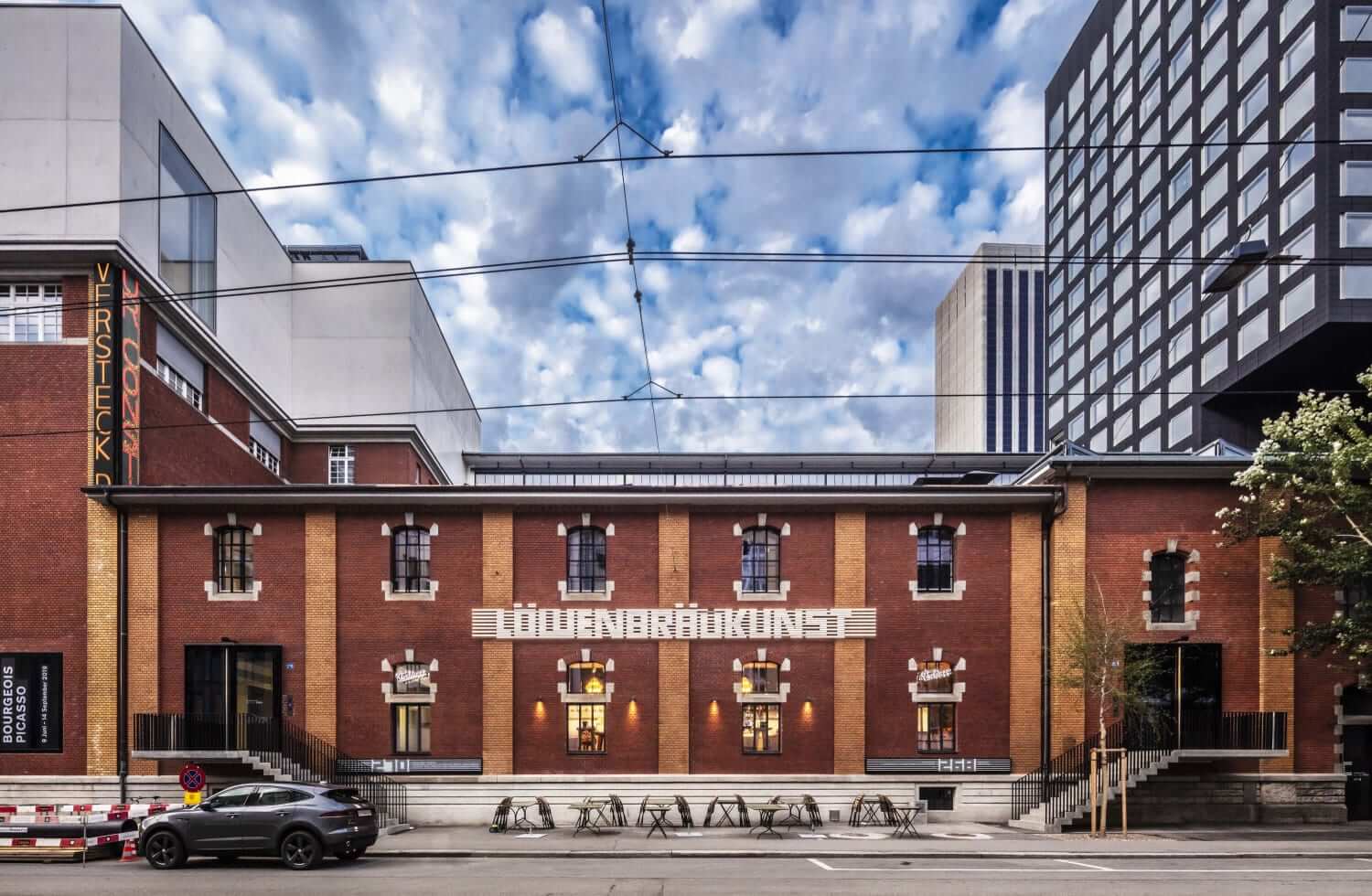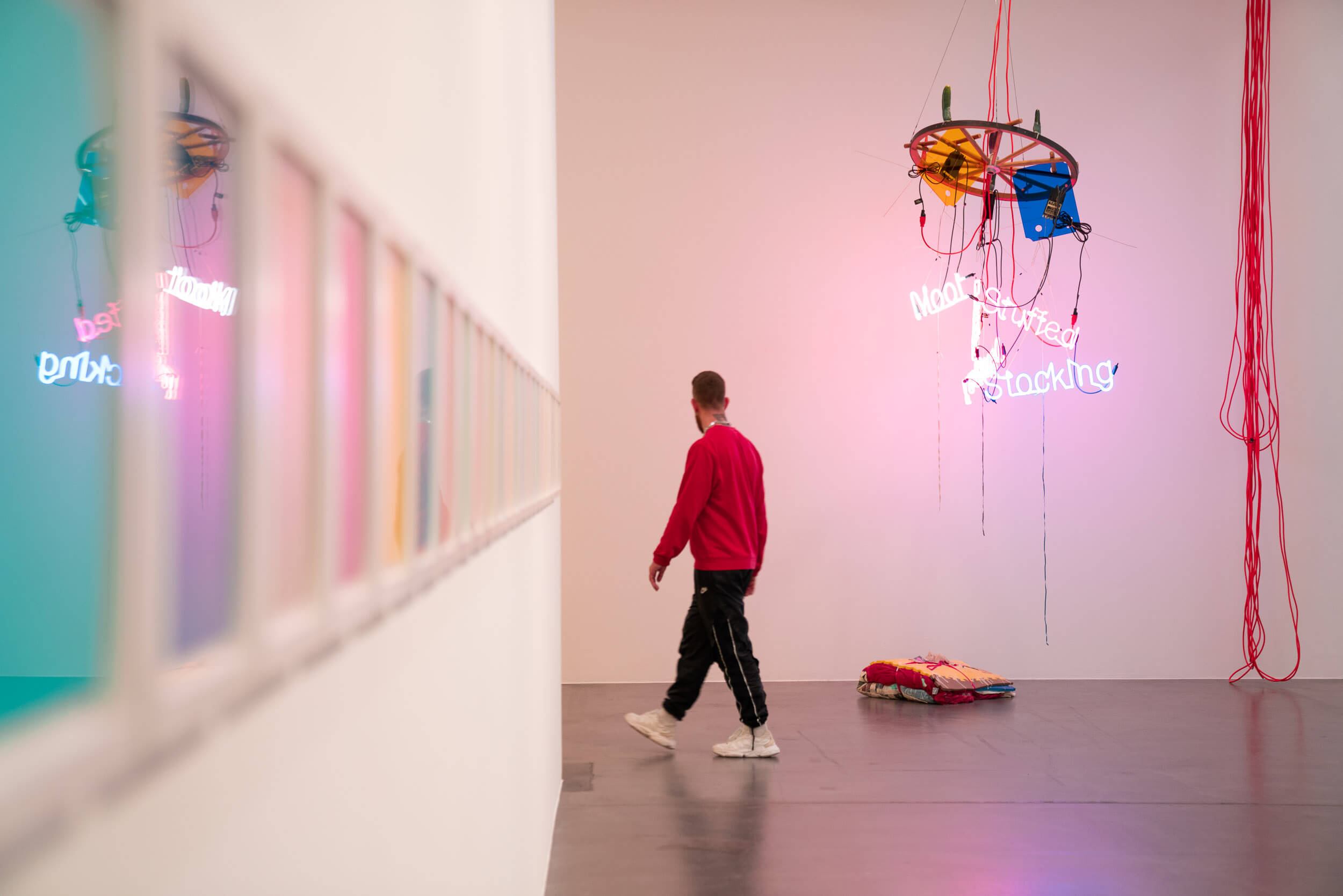Daniel Baumann tells us about a wonderful Zurich, rich in art and events during Zurich Art Weekend
Daniel Baumann
On the occasion of Zurich Art Weekend 2022, which will take place next weekend from 10 to 12 June 2022, Daniel Baumann, director of the Zurich Kunsthalle and member of Zurich Art Weekend academic committee, gives us his vision of the fifth edition of the festival. ZAW is a platform for exchange and encounters with leading art players, artists, curators, collectors and institution directors. Three days dedicated to art to discover a curated programme of more than 90 exhibitions in leading institutions, galleries, off-site spaces, universities, collections and foundations and more than 130 public and private events, with free admission, to attend. Zurich Art Weekend transforms the city into an unmissable platform for encounters, discoveries and new encounters within the broader contemporary art scene.
Zurich hosts numerous concerts, performances, festivals, and more year-round, visitors could use the Zurich Tourism website to find out about the rich program.
Daniel Baumann is an art historian and curator based in Basel and Zurich, member of Zurich ArtWeekend academic committee. He served as curator from 1996 to 2014 of the Adolf Wölfli Foundation, Museum of Fine Arts Bern, Switzerland. In 1997, he curated Martin Kippenberger. Respektive at Mamco in Geneva in 1997. He was the curator of Kunsttangente, a public art project in Basel, Switzerland (2003-2010), and curated, in 2003, Junge Szene at Secession in Vienna. In 2004 he started an ongoing exhibition series in Tbilisi, Georgia. From 2008 to 2013 he ran the Basel exhibition space New Jerseyy together with Tobias Madison, Emanuel Rossetti, and Dan Solbach. He was the curator of the 2013 Carnegie International at Carnegie Museum of Art, Pittsburgh, along with Dan Byers and Tina Kukielski. He is a contributor to magazines such as Artforum, Pavillonesque, Piktogram, Spike, Reading Rämistrasse et al. Daniel Baumann is the director of Kunsthalle Zürich, Switzerland, since 2015.
You are an established curator and have been director of the Kunsthalle Zurich since 2015, and part of Zurich Art Weekend Academic committee. Can you tell us more about your curatorial line and what challenges you face in your daily work? What, if any, are the city experiences, the neighborhoods, the people who influence or have influenced your work?
Two large questions have informed and challenged me as a director of Kunsthalle Zürich, and they are: What is the role of an institution like the Kunsthalle in the current cultural landscape where museums look like galleries, art fairs behave like biennials (and the other way around), where auction houses replace galleries, museums want to be Kunsthalles (and the other way around) and where the digital revolution is, once again, rapidly changing this landscape and our society. And, secondly, what is the relationship of this institution and of art to the place where I, where we live? What responsibility do I have, or does the institution have towards this place and its people? These are all interesting topics and would need a long conversation.

The contemporary art scene in Zurich has always been broad, the city has always been a breeding ground for young and established artists. What have been the main elements that have made Zurich an important city for contemporary art and who are the key players in the city who are shaping it?
Zurich used to be a very conservative, a very Zwinglian, Protestant city until the 1970s: no amusement please. Things started to change when a mass of young Zurich youngsters and tweens rebelled against the establishment, among them people and sometime punks like Bice Curiger, Peter Fischli, David Weiss, Patrick Frey, Klaudia Schifferle and many other artists, curators and critics. A new Zurich came into being, with the Kunsthaus, the Kunsthalle, a fast-developing gallery scene, two art schools, a radical alternative scene, a strong yuppie culture and some brilliant collectors and art dealers. This turned out to be the perfect mix to succeed because it produced a dynamic checks-and-balances situation, even on a micro-level: this is Switzerland and you sit around a table or stand in bar and would discuss newest trends, gossips, and challenges with everybody from Thomas Ammann to, again, Bice Curiger, Peter Fischli or Dieter Meier, Jacqueline Burckhardt, This Brunner, collectors Michael Ringier and Cristina and Thomas Bechtler, but also Harald Szeemann, Beatrix Ruf, Mendes Bürgi and other brilliant curators. It’s actually still the case today.
What are the most interesting events/exhibitions during Zurich Art Weekend? Let’s try to imagine an itinerary of the city seen through your eyes: what would you choose and what would you suggest to visit among the museums, art galleries, and cultural spaces? Is there a particular place among the lesser-known ones that should receive special attention?
Too many good events, too many good shows, from Plymouth Rock to Hauser & Wirth’s stunning shows on Jack Whitten and Frank Bowling, from Ida Ekblad at Karma International to Sophia Al-Maria and Théo Mercier at Luma Westbau, from Fischli/Weiss at Eva Presenhuber to Salon Solaire at Sun Works. Also don’t miss the newly opened WeissFalk gallery, the kingdoms of zines at Innen and Nieves, the new show at Last Tango and so on, and so on. You probably need more than a weekend to see everything.

Even if you’re based in Basel, we would like to know what are your favourite places to meet up with friends, your favourite restaurants/bars/nightclubs in Zurich, if any?
I love the neighbourhood where I work! It’s very lively, there are some really great places around Löwenbräu where Kunsthalle is. The most legendary of all is, at least for me, the Kiosk Am Damm where we get beers, cigarettes and samosas. It’s run by Baki and Sultana and we have become friends. Right next to it you will find the Viadukt with a really good selection of take away food, with the best cheese in town (Schnebelhorn), with delicious Sushi and Ramen, with ales for British ex-pats, but also the Markthalle Restaurant were we meet, hang out, eat and waste time. Further down the street is the Josefwiese, a small popular park where people play pétanque, pingpong and frisbee and where you can get a nice wurst with a cold drink. And there is the river Limmat for a daily swim, you can’t ask for more. If I want to treat myself in a culinary way, I go to Gamper Restaurant, Nietengasse 1.





